‘It was a genuine selling point and now it’s not’: The battle to save the River Wye
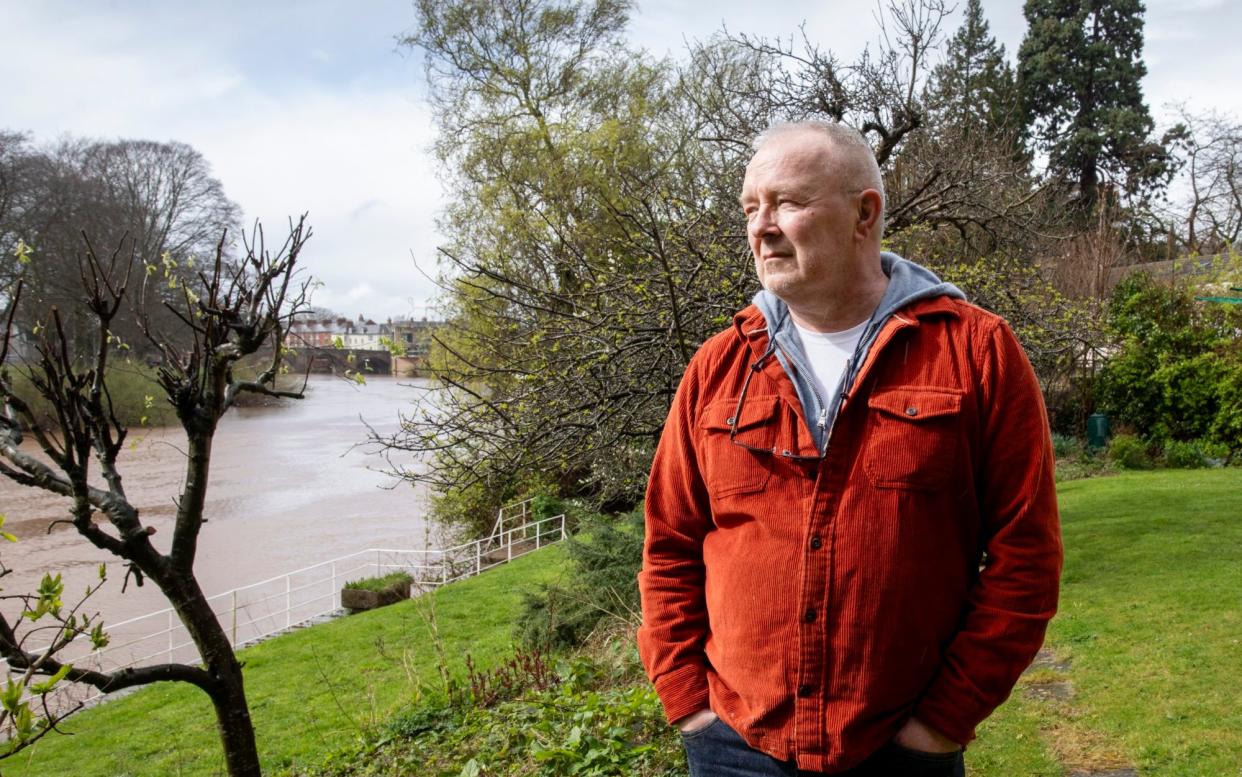
Every day after work during the Covid lockdowns, Pete Redding would head to the River Wye to clear his head. As a consultant delivering mental health training, the switch to online working had taken its toll.
“It was really stressful. I was staring into the screen looking back at myself in that little box for six hours constantly, delivering some pretty tricky things,” he said. A few years earlier, he had been introduced to coracle (a woven, one-person boat) building by a Polish friend and had even built his own. “I would knock off work, chuck my coracle on my shoulder, head down to the river and float off.”
Paddling on the Wye, a 155-mile river that meanders from mid-Wales to the Severn Estuary, was a crucial coping mechanism for Redding, who is 55 and lives in Hereford with his wife and 14-year-old daughter. “I couldn’t hear a car, I couldn’t hear people. All I could hear was birdsong. It was really magical. The whole world just changes in that moment.”
But as the months passed, Redding began to notice a change in the water. The common plant ranunculus, also known as water-crowfoot, that once carpeted the river, slowing down its flow and attracting an abundance of wildlife, suddenly disappeared and was replaced by a brown-green sludge.
“It was gradual to begin with and then it really accelerated,” he says. “In two years, we went from 70 per cent of the ranunculus coverage we once had to almost zero.”
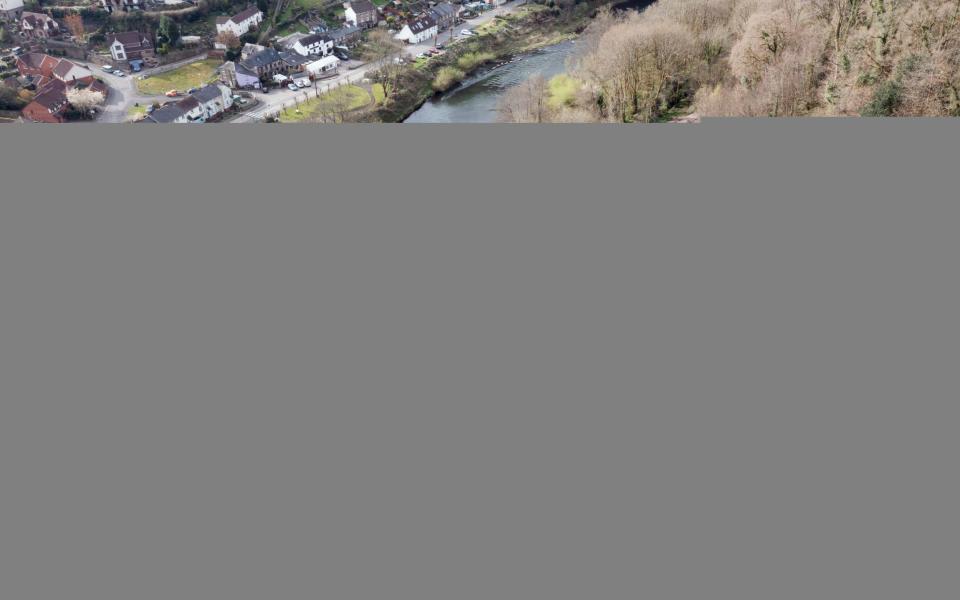
For years, river conservation groups have warned that the Wye’s ecological health was rapidly deteriorating. Now, it seems to have reached a crisis point, the urgency made official after its ecological status was downgraded last year by Natural England from “unfavourable recovering” to “unfavourable declining”.
This month, the Government published the River Wye Action Plan which aims to preserve the long-term health of the river by offering up to £35 million in grant support, implementing a taskforce and appointing a “River Champion”: the former Conservative MEP, Anthea McIntyre CBE.
However, the plan came a month too late to prevent a legal claim, being launched by the law firm Leigh Day against Avara Foods Limited, one of the UK’s biggest food producers, which produces chicken for Tesco and other major retailers, alleging that industrial scale chicken farming in the river’s catchment area is polluting the water. Leigh Day has invited anyone that feels they have been affected by the degradation of the Wye and its tributaries in recent years to join what they say could be a multi-million pound claim.
While the declining health of the Wye has been reflected in its fauna and flora – it’s bad news for the Atlantic salmon and white-clawed crayfish, as well as the ranunculus, which afford the river the highest protected conservation status – it has also been devastating for those living near the river for whom it is a lifeline, a source of income and a way of life.
Redding is just one of the claimants. The sight of him with his coracle, which he carries on his back to give the impression of a mollusc, became so common around Hereford that he was recently featured on the cover of a local folk band’s new album.
“Up until three years ago, as soon as the weather was reasonable – it didn’t even have to be nice – I would be on that river on average six times a week,” says Redding. “Last year, I probably only went once or twice a week. And when I got off the river, I was angry.”
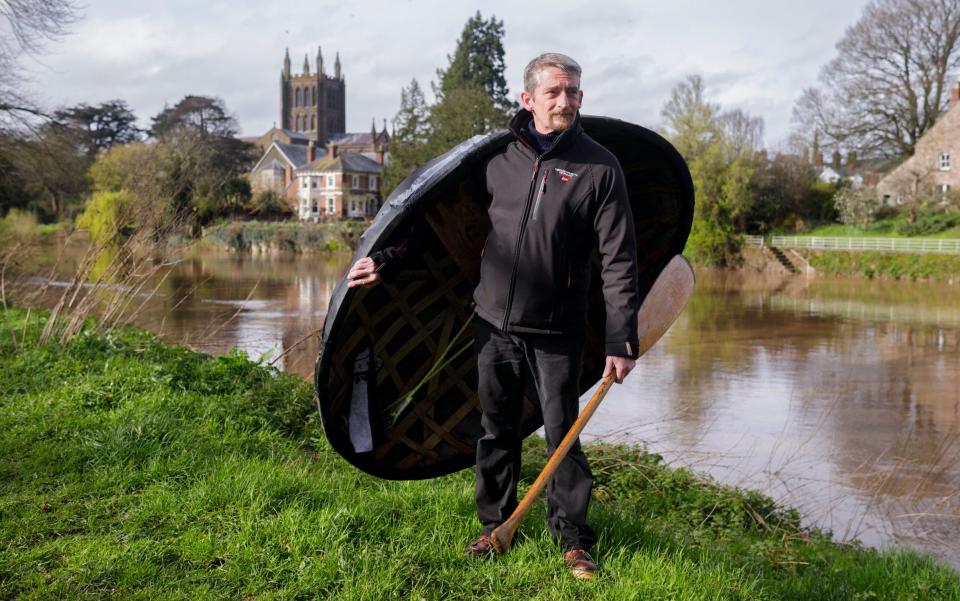
Mark Hubbard is also furious – and a fellow claimant. He lives in the only surviving part of Hereford Castle, built in the 13th century under Henry III on the banks of the Wye. The garden of the house slopes directly down onto the river, which on a spring day is brown as a result of the heavy rain that has washed in topsoil and stirred silt.
The river was once a big part of the draw for potential visitors to the guest rooms that Hubbard and his partner have created in one half of their house. The guest house closed during the pandemic, but the couple are hoping to reopen later this year after some refurbishments to the rooms.
“You used to be able to sit on the edge of the river, and you could see straight to the bottom in the summer. You could see the fish coming in between the ranunculus. The kingfishers would sit on the wall and fish. It was a stunningly beautiful spot,” he says. “We are one of the most important buildings in Hereford, we are part of the history of the city. When we open, how am I going to say to people ‘come and sit by the river’? Because you just can’t say it anymore. It was a genuine selling point, and now it’s not.”
“It gets you quite angry, upset, and so sad not to see those things we used to see on a daily basis. There’s a creeping silence of nothingness,” he adds.
The causes of the Wye’s decline are numerous and somewhat disputed but conservation groups and government agencies agree that excess phosphate pollution in the river is a major factor. And the biggest new contributor of phosphate pollution in the area has been manure spread on fields from the explosion in chicken farms in recent years.
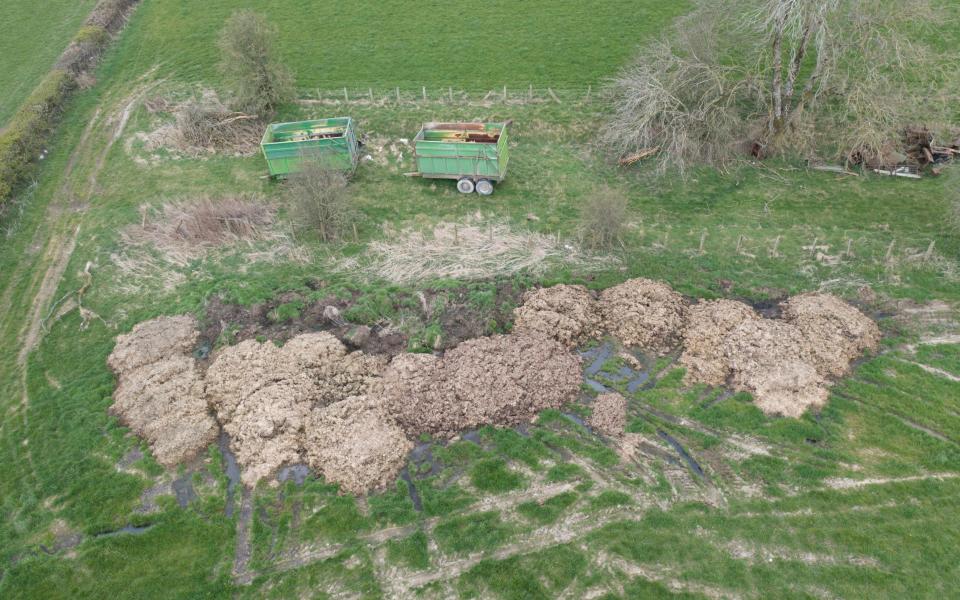
For Hubbard, a genial man of 59, who also runs a whole foods shop in Hereford, the impetus is not money, but frustration about inaction over the state of the river. “In the absence of the Government, the council and the Environment Agency, somebody has got to do something,” he said.
Researchers at Lancaster University have found that up to 70 per cent of the phosphate in the area comes from agriculture, which is currently dominated by chicken farming. There are an estimated 23 million chickens kept in the fields around the Wye, around a quarter of the country’s total, and a significant increase on the 13 million kept a decade ago.
The manure created by these birds ends up being spread on the surrounding land, leading to a phosphorus-rich runoff that ends up in the river and causes algal blooms that choke aquatic life.
Around 80 per cent of these birds end up in Avara’s supply chain, according to Leigh Day, and go on to our supermarkets, restaurants and takeaways.
Hubbard said he saw the danger to the river from the chicken farms coming down the track from his days as a councillor 10 years ago.
“You just saw those chicken sheds coming down the line,” he says. “They were just barreling through the planning committee. And there was no way of turning them down because the planning regulations didn’t allow it.”
Although the poor state of the river is undisputed, responsibility for it has turned into a blame game.
Avara says it is not directly responsible for the impact of manure on the land, given that most of it is spread on fields as fertiliser for crops, and says it is not responsible for the most recent increase in chicken farms.
It also argues that the impact of its chickens have been overstated and contributes just a fraction of the historic build-up of phosphates in the soil, which means any additional surplus can tip levels over to disaster.
But last year, it unveiled a plan to reduce the impact of chicken manure from its supply chain, including exporting it out of the catchment as part of a pledge to stop contributing to excess phosphate in the area by 2025.
It says it has nothing to defend in the Leigh Day case, which it describes as an “opportunistic attempt to profit from a serious environmental issue” that has “no merit and is not supported by evidence or expert opinion”.
The council has come in for its share of the blame too. Elissa Swinglehurst, who oversees environmental issues at Herefordshire Council, agrees that the demise of the Wye was clear nearly a decade ago.
“When I was first elected in 2015, I knew this was a problem,” she says. “I’m an angler, a fly fisher, I spend a lot of time in and around rivers.”
But the committee could only assess planning applications for the rising number of chicken sheds based on narrow criteria which did not include the potential environmental impact of the manure.
“The planning application is for a building and the problem is not the shed,” she says. “The council looks at how big, how high and where these sheds go.”
She concedes that the council bears some responsibility for the impact that the intensive poultry units have had on the Wye, given its role as the local planning authority. But, she says, “the council can’t chase around the countryside making sure that farmers are applying their manures correctly. That’s not our job.”
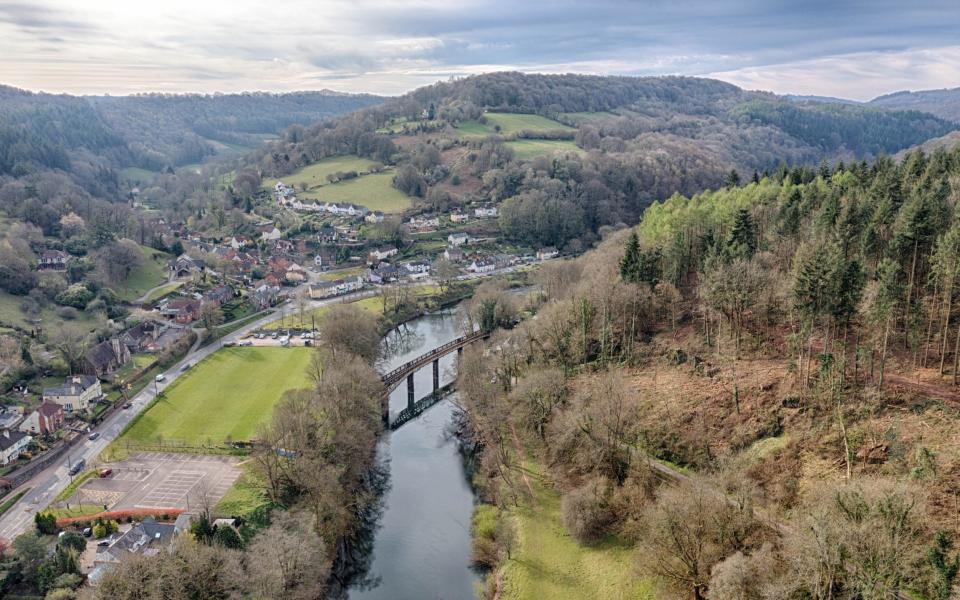
Meanwhile the Environment Agency, which has been accused of “scandalous neglect” over its role in regulating the farms, has argued there are factors that “are not in control of the agency” which contribute to the pollution.
The new action plan will include up to £35 million in grants for poultry manure combustors on farms but campaigners say the long-awaited plan has come too late to stop serious damage to the river, and could shift the problem elsewhere. They fear a repeat of the “manure mountain” on the River Severn, with several new poultry farms popping up in the area.
The inaction over more than a decade has left campaigners and locals looking for ways to bring accountability. Leigh Day is being supported in its case against Avara by the charity River Action, which has also brought a judicial review against the Environment Agency.
Hubbard points to a recent ruling in the US, where food giant Cargill (which owns half of Avara) was found responsible for pollution in the Illinois River.
“Cargill must have known that when they invest in a river valley like they have here, there would be problems,” he says.
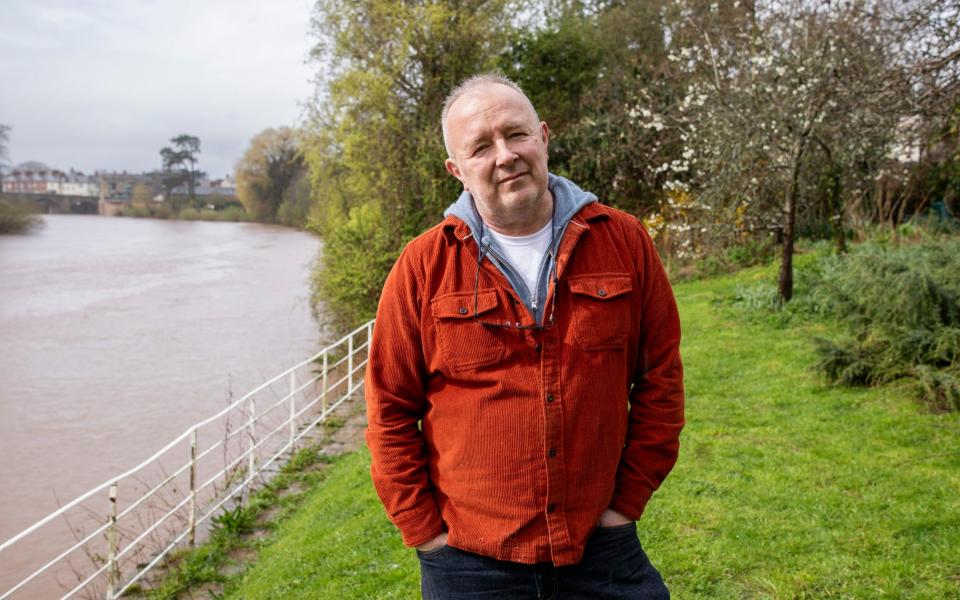
Experts point to the fact that, as far back as 2014, the Environment Agency and Natural England warned poultry farming could be contributing to the phosphate overload in the catchment and suggested that the problem could be underestimated.
“This has been well researched,” says Dr Shane Rothwell, a senior research associate on the RePhokUs project at Lancaster University, which looks at the phosphorus issue in the Wye. “A lot of scientific research has gone on in the Wye. Ten years ago, the problem was scientifically well understood.”
The Illinois River case, which concluded last year, was first brought in 2005, and Hubbard believes he and the other claimants may be in for a “long, slow tedious fight”.
“I don’t expect to see any money from this. I don’t even expect to be alive when this court case ends,” he says. “But somebody has got to point the finger and say: ‘you can’t do this.’ Nobody else is protecting our river and that’s what makes my blood boil.”

 Yahoo News
Yahoo News 
